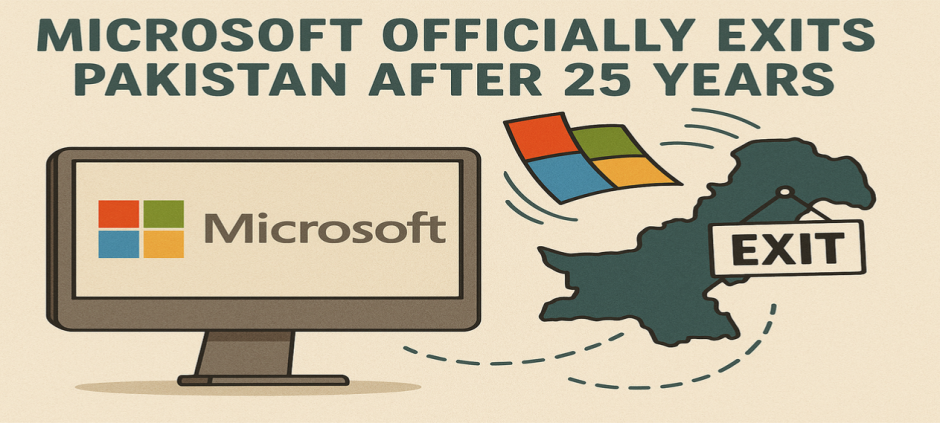Microsoft has officially ended its operations in Pakistan after 25 years. This marks the end of a long-standing presence by one of the world’s biggest tech companies.
The remaining employees were recently informed that Microsoft is fully winding down its business in the country. Only a few staff members were still active before the final decision was made.
Jawwad Rehman, the founding Country Manager of Microsoft Pakistan, described the closure as the “end of an era.” He led the company for seven years, building teams, expanding digital access, and forming partnerships across the country.
“It wasn’t just a job—it was a calling,” said Rehman. “We focused on trust, partnerships, and giving young people a chance to grow.”
During its time in Pakistan, Microsoft launched several important projects. It helped build hundreds of computer labs in remote areas to support digital education and improve tech access in underserved regions.
Microsoft’s exit comes at a time when Pakistan is struggling with economic challenges and political uncertainty. These issues have made it harder for global companies to invest or expand in the country.
In 2022, Microsoft had planned to expand its operations in Pakistan. But due to rising political instability, the company chose to shift its focus to Vietnam instead.
The closure is a major moment for Pakistan’s tech industry. It shows how critical economic and political stability is for attracting global business. Microsoft’s departure may also affect investor confidence in the country’s digital future.
Despite its exit, Microsoft’s legacy in Pakistan includes digital growth, infrastructure development, and job creation over the past two decades. As the company closes this chapter, it leaves behind a foundation that future tech efforts can still build upon.
Microsoft’s exit from Pakistan follows a global trend, as seen in its near-complete exit from Russia amid a recent bankruptcy filing.











